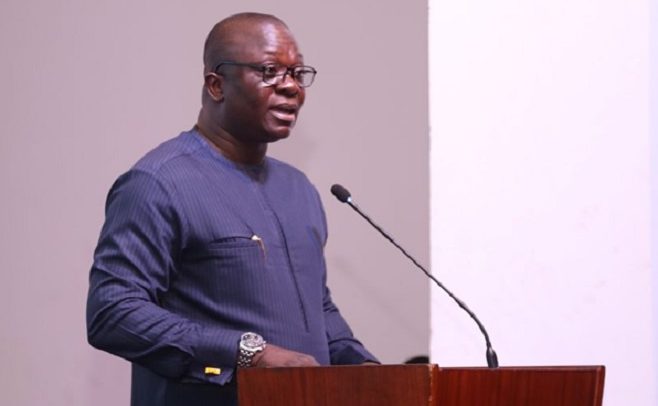
Ghana’s agricultural sector is facing an unprecedented crisis due to the excessive use of agrochemicals, which threatens both public health and food security, a leading Agricultural Scientist has warned.
Dr Kwaku Onwona-Hwesofour Asante, Coordinator of the AgroEcology and Circular Economy for Ecosystem Services (ACE4ES) Africa Consortium at the Crops Research Institute of the Council for Scientific and Industrial Research (CSIR-CRI), painted a grim picture of the consequences of chemical-intensive farming during the CSIR-CRI Open Day on Tuesday.
The stark warning came as Ghana launched its Regional Policy Guide on Agroecology, Circular Economy and Climate Action, and commissioned a new Technology Park at Fumesua—marking a pivotal moment in the country’s fight against unsustainable farming practices.
The event brought together research scientists, farmers, business people, and members of the public to address these pressing agricultural challenges.
“The food system in Ghana is under pressure,” Dr Asante warned. “We are seeing a rise in non-communicable diseases linked to the uncontrolled use of agrochemicals. Pesticides sprayed directly onto crops leave harmful residues that compromise the nutritional integrity of our food,” he added.
Dr Asante painted a stark picture of the ecological consequences facing communities heavily dependent on pesticides. He warned that over a period of five to 10 years, approximately 80–90 per cent of pollinators—essential for crop fertilisation—would disappear from such environments.
“This leads to poor fruiting, threatening food security and increasing the risk of hunger,” he explained. “Without pollinators, especially in crops that depend on insect pollination, we risk losing entire harvests,” he elaborated.
The newly commissioned Technology Park is set to become a continental centre of excellence for agricultural research and innovation. The facility will host demonstrations of climate-smart technologies, specifically aimed at reducing greenhouse gas emissions in farming systems.
Dr Asante introduced the ACE4ES initiative—a $1 million climate action project funded by the Climate and Clean Air Coalition. The consortium includes Ghana, Nigeria, Tanzania, and Benin, and focuses on reducing super pollutant emissions in agriculture.
Prof. Paul Pinnock Bosu, Director General of the CSIR, emphasised that the project aimed at feeding Ghanaians sustainably.
He noted that CSIR was poised to undertake private sector-driven research and development and technological innovation, making the Technology Park a timely development.
He called on business people and farmers to visit the park and adopt available technologies to better Ghana, stressing that the initiative represented a critical step toward transforming Ghana’s agricultural sector into a sustainable, climate-resilient system that prioritised both food security and environmental protection.
Prof. Maxwell Darko Asante, Director of CSIR-CRI, expressed excitement that the project reflected the Institute’s mission to create solutions that are scientifically sound, environmentally sustainable, and responsive to national and global agricultural challenges.
Mr Etu Bondze, Technical Advisor to the Ministry of Food and Agriculture, noted the need to address environmental realities associated with traditional farming practices to ensure food security.
Other speakers included: Dr Jonas Osei-Adu on behalf of CORAF; Mr Bismark Owusu Nortey, Peasant Farmers Association of Ghana and Prof. Elvis Asare -Bediako, Vice Chancellor of University of Energy and Natural Resources.
FROM KINGSLEY E. HOPE,
KUMASI
The post Excessive agrochemical use threatens public health, food security – Dr Asante appeared first on Ghanaian Times.
Read Full Story














Facebook
Twitter
Pinterest
Instagram
Google+
YouTube
LinkedIn
RSS